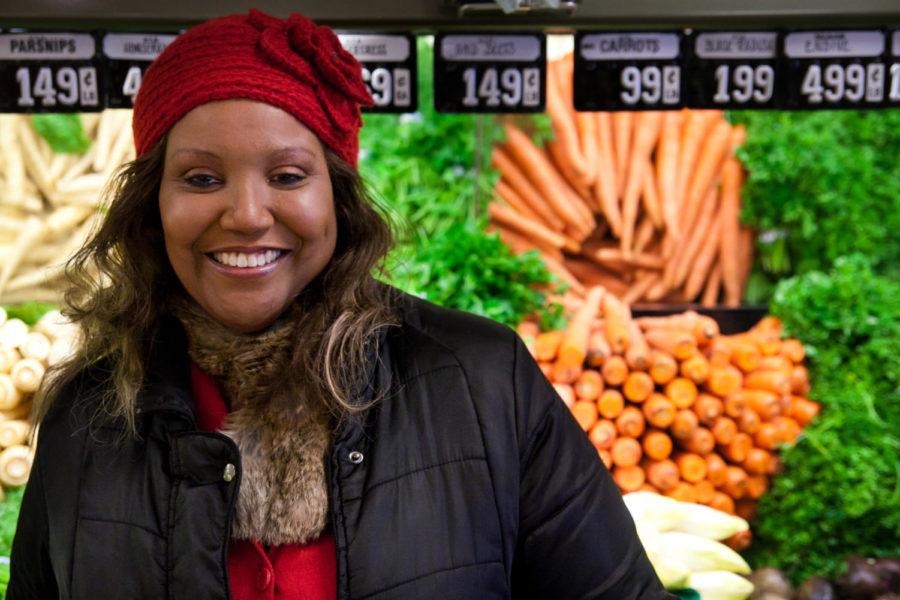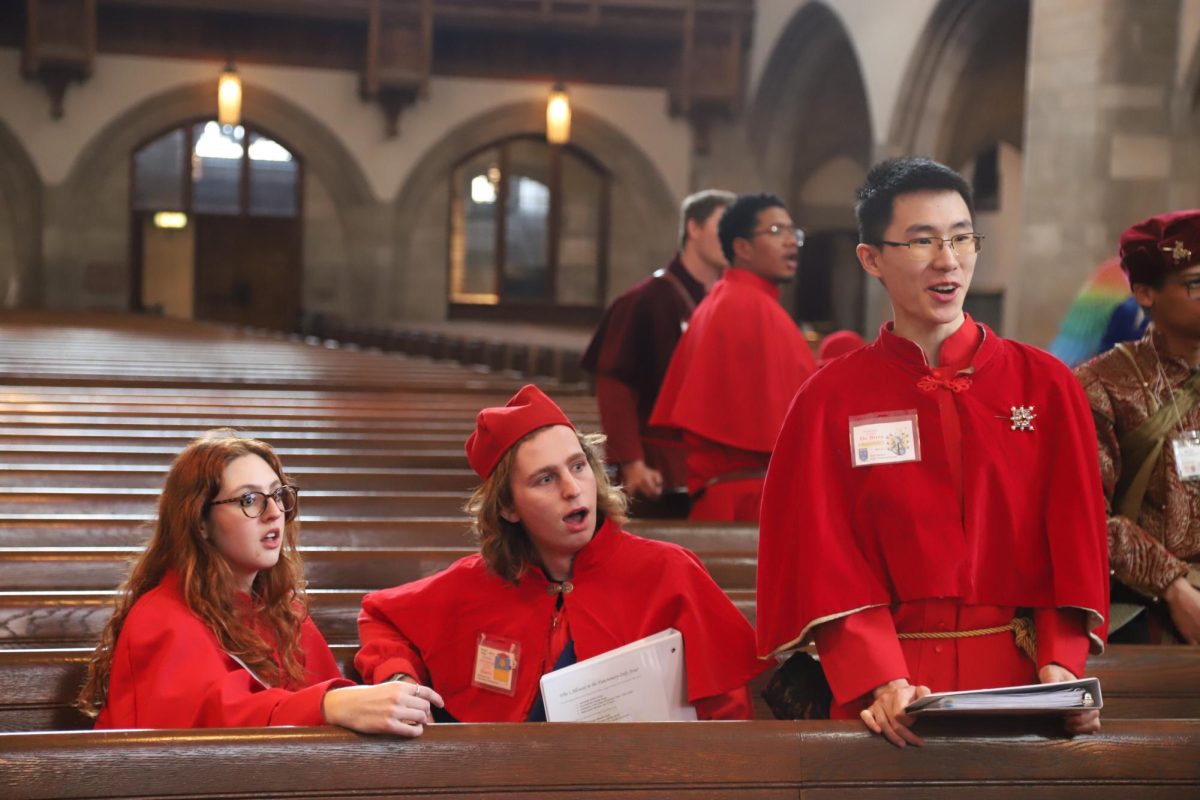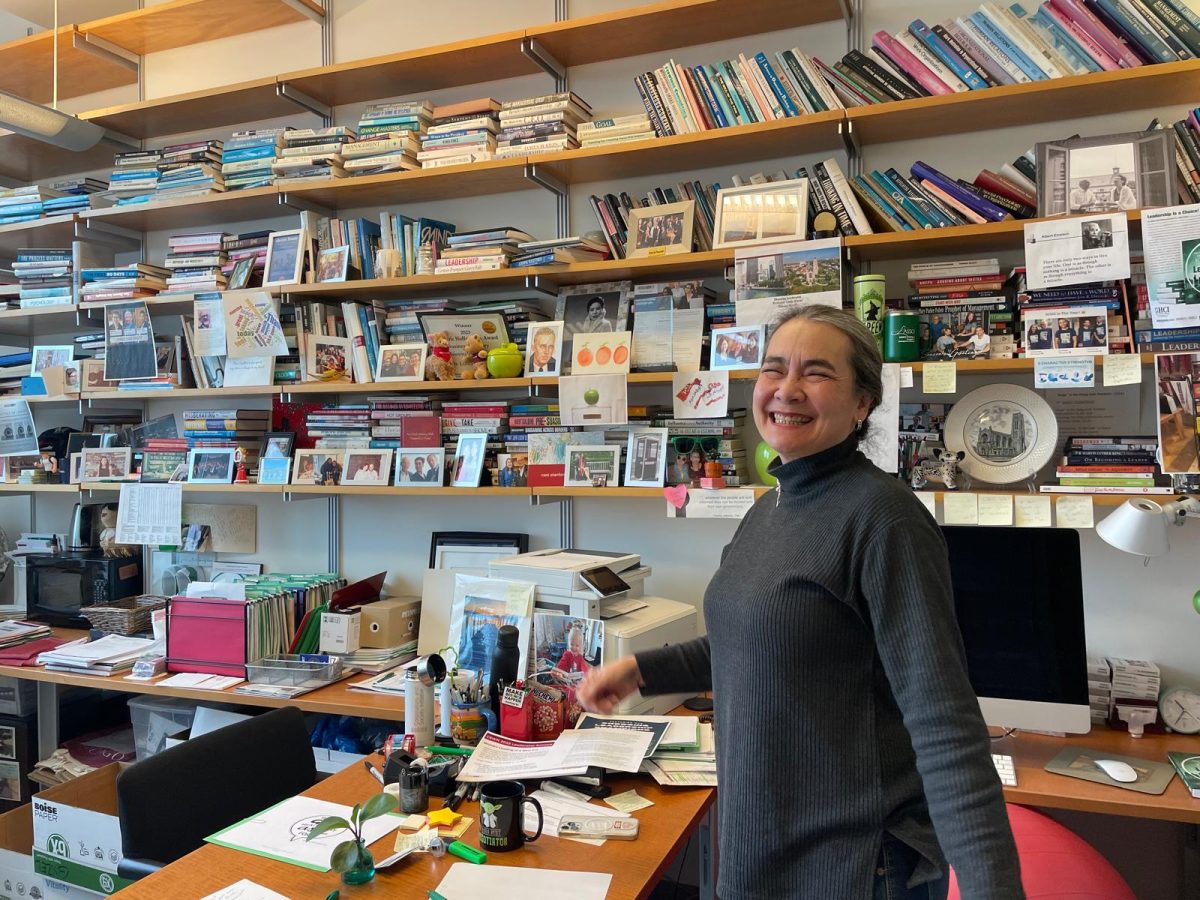Divine intervention compelled Betty Jo Nichols to start the Homemaking Skills Institute, a nonprofit organization that teaches at-risk youth and adults how to cook healthy meals. Nichols, who was in the catering business for over 15 years, was inspired to give back to her community after a Sunday school teacher told her that God intended for her to help the teacher lose weight. Since August 2007, the South Chicago native has been traveling to various schools and youth groups around the South Side teaching students how to make meals that are delicious but low in sodium and fat.
This past summer, she gave a cooking demonstration to a group of local high school students as part of the Pritzker School of Medicine’s Summer Service Partnership, a collaboration between medical school students and community leaders that promotes healthy living on the South Side. Nichols sat down with Grey City to tell the history of the Homemaking Skills Institute and to share some of her knowledge on healthy eating.
GREY CITY: Have you always known that you wanted to go into the culinary arts?
Betty Jo Nichols: I came from a family that cooked, and it brought me a lot of peace and a lot of joy. I wanted to go to chef school so I could learn to line cook, and I wanted to make sure that I loved cooking. It’s amazing because now I have a full-time job. I’m a culinary arts instructor for the human rights organization Heartland Alliance, and there I’m doing the same thing—teaching people how to cook. But now I’m getting paid for it. The economy was so bad, I had to do something. But I’m still doing the nonprofit.
GC: How did you come up with the idea to start teaching cooking and nutrition?
BN: I wanted to give people a skill they would be able to use right away. Even if you’re trying to get your [formal] education and everything, there are homemaking skills like learning how to cook that you’ll still need throughout your whole life. I want to get something going on in their lives, and if nothing else, [they] can learn to be healthier.
GC: On your Web site you share a remarkable story about helping a church member lose weight. Was that how you started the Homemaking Skills Institute?
BN: I was a Sunday school intern, shadowing people until I eventually had my own class to teach. One teacher—she was an obese woman—walked up to me and asked if I could help her lose that weight. She believed God had directed her to me, and that I was supposed to help her. She said that if she didn’t do something she wasn’t going to live. And it was right in line with the timing of me starting the Homemaking Skills Institute. She lost about 180 pounds.
GC: What exactly do you teach your students?
BN: When they are children or teenagers, I teach them basic skills on how to live a healthy life. A lot of times we let our children grow up without any life skills: They have no etiquette training, they don’t know how to clean the house or deal with personal hygiene. If they’re a little older, married or newlyweds, I try to teach them basic skills—not only on how to cook, but how to stay healthy as well. A lot of them, as older adults, start running into high blood pressure due to eating improperly. Their cholesterol is off-track, and they end up having heart attacks and diabetes. They get these diseases because they’re not eating properly. So when I give them a few different tips or skills I am able to put them back on the right track.
GC: Do you have any staff?
BN: I have volunteers. There’s a lot of preparation that’s needed in order to get a group of people together to cook. [I ask volunteers], ‘Can you go out and get these things?’ There’s a lot of things that I have to bring in, almost like I’m catering an event.
GC: What would you say are the challenges that you face in doing this?
BN: Grant money is hard to find, and I can’t do it for free. I’d love to, but I have to budget things. I don’t have the excess money on my own. It’s just been a very strange year.
GC: Can you talk about your collaboration with the University of Chicago and the Pritzker School of Medicine’s Summer Service Partnership?
BN: The University of Chicago came to me and had me help out with their transitional program for medical students during the summer. I was able to prepare a healthy meal and teach different techniques on how to prepare the dishes. We had a whole group of people, and we spent some time preparing a meal. I taught them how to make every one of the dishes, and then we ate!
GC: What sort of ingredients do you use?
BN: Here’s what I tell people: You make cooking work for you. And the way you make it work? Change up the ingredients from what you normally do. In the city of Chicago and throughout the suburbs, there are so many foreign vegetable markets, it’s unreal. You don’t have to wait until its season comes to get a certain vegetable you want. I think it’s a good idea to take people on trips where they can visit one of those markets.
GC: Why do you think there seems to be such an issue with unhealthy eating on the South Side?
BN: We want whatever is quick; we don’t want to take time out of our busy schedules. The days of coming home and taking the time to wash, cook, and prepare everything is a thing of the past. I hope I’m wrong about that, but the way of the world has changed so drastically, nobody has time anymore to cook. And when you don’t have time to cook, what do you do? You get what’s quick, which is usually not good for you because it’s processed. With healthy food, you’ve got to put a little love in it. People are always saying it’s expensive, but what it actually costs is a little work.
GC: What drove you to healthy eating? How did you become so passionate about the subject?
BN: If you’re hungry, you want the dinner now, you don’t want to go home and cook. I don’t want to go home and cook, but I don’t want to put stuff in my belly that isn’t good for me either. I want to make sure that I live for the longest time I possibly can. I don’t want to get sick down the road because of something I could have prevented.
GC: What are your favorite recipes?
BN: Lasagna. Vegetable lasagna. Number one. I didn’t know it could be so healthy and taste so doggone good!









